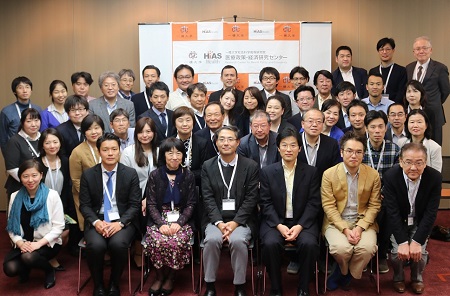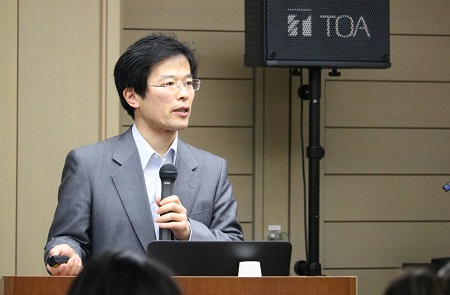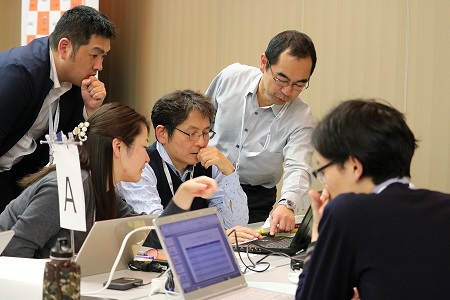HIAS Health delivered the first Health Economics Short Course of the Hitotsubashi Professional Education Program in Health Economics over two weeks; Nov. 9 (Fri), 10 (Sat), 11 (Sun), 17 (Sat) and 18 (Sun) 2018. (Lectures and course materials were given in Japanese.)
| Health Economics Short Course is an advanced professional education program (recurrent education program) for working professionals, which is given intensively over two weekends and aims to contribute to policy making and actual sites of health and long-term care using Economics and other Social Science knowledge. Forty students attended the very first course in 2018 and those who completed all course work received a certificate. |

|
 | Emphasizing “Evidence-based Policy Making (EBPM),” lectures were designed to improve understanding real situations of policies and management regarding health care and long-term care, to analyze them, and to introduce measures to improve efficiency of health system.
Prior to the main four day course, an optional class consisting of a lecture and actual practice using laptop PC, “basics of statistics used in this short course,” was offered to students who wished to attend on Nov. 9 (Fri).
The picture to the left is of Prof. Ko Arai (Professor, Graduate School of Business Administration, Hitotsubashi University/HIAS Health researcher) at his lecture.
|
| In addition to classroom-style keynote presentations and lectures, active-learning components, such as exercises and group projects, were included in the course. Active learning helps students not only to have deeper understanding of the lectures but also to vitalize discussions and to enhance interactions among students whose backgrounds and occupations vary, including local government workers, health care workers, pharmaceutical company workers etc. |

|
Students’ voices
- In the course, I could handle actual data on my own PC and perform Regression Analysis. That really helped my understanding. Usually I feel defensive about statistics because numerical formulas look complicated, but after attending this course I feel like I understand it better and think I will try to analyze the data that exist in familiar settings around me with my own hypothesis. I may still make mistakes in composing a hypothesis and in handling variables, however, anyway I will try. Thank you very much. <Health care>
|
- I learned that levels of evidence of existing data could be strengthened by using statistical measures. That was very interesting and also, I felt, quite useful. <Local government>
|
- I could reorganize the problems of Japanese HTA (Health Technology Assessment) and would like to study more to gain deeper knowledge of HTA <Pharmaceutical>
|
- The course taught me about the fields that are very new to me. Now I understand why generic drugs, SPD system, bed occupancy rate, etc. have been talked about in the working place. <Health care>
|
- I was able to learn about a new world I never knew before. I learned the importance of hospital accounting and hospital management and the usefulness of DPC. <Pharmaceutical>
|
- This course was an opportunity to re-think what the quality of health care is. I became interested in verifying if the preventive health care actually leads health care cost reduction. <Pharmaceutical>
|
- A supportive atmosphere brought high motivation into the learning environment. Taking this course taught me how important it is to realize what I don't know so I can ask the professionals the right questions. I was truly satisfied by this program. <Health care>
|
About the second Health Economics Short Course
The second Health Economics Short Course is scheduled on Nov. 23 (Sat), 24 (Sun), 30 (Sat), and Dec. 1 (Sun), 2019.
(Lectures and course materials will be given in Japanese.)
Contents of the course, application and other details will be announced in the Social Cooperation Program page of this Homepage.




